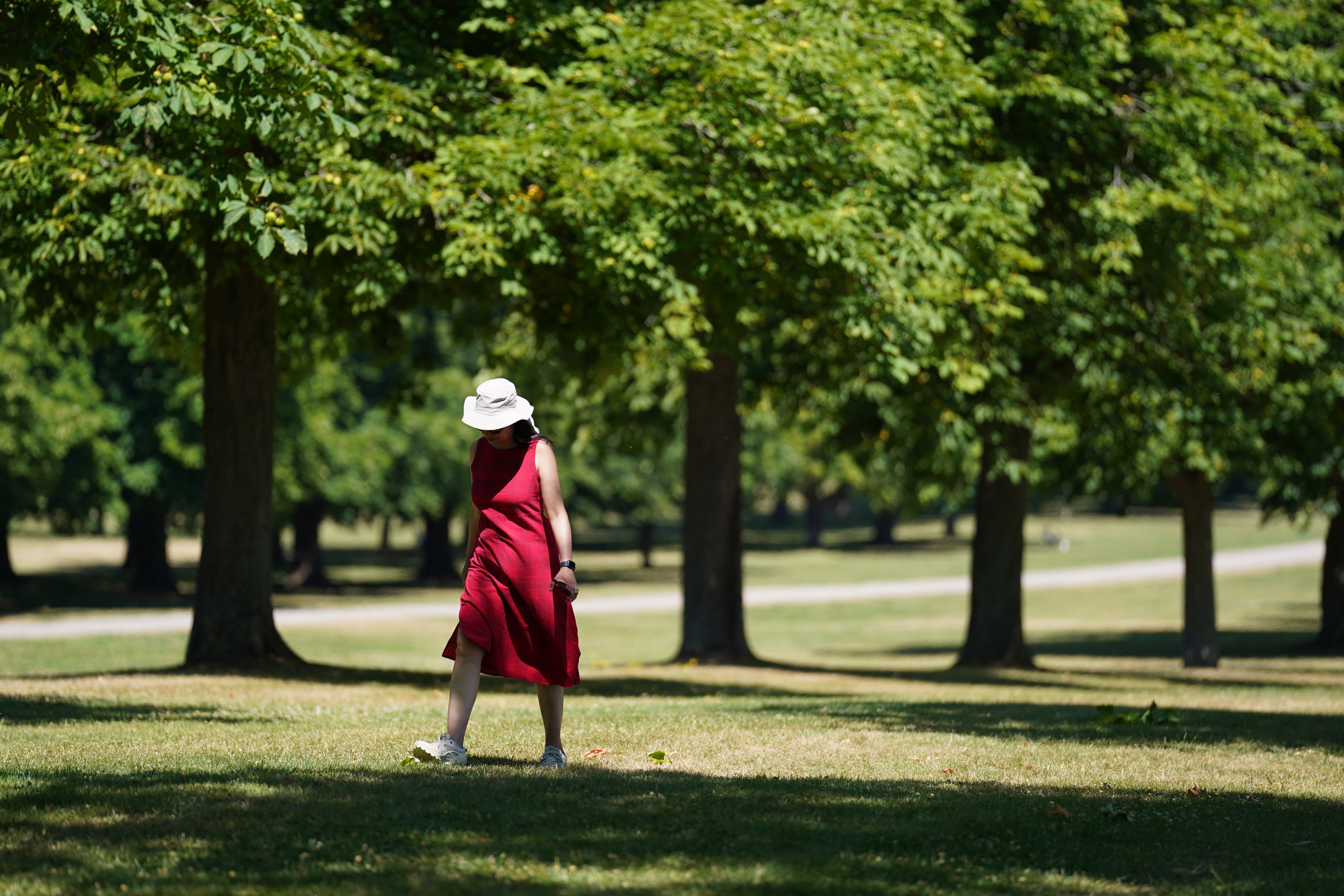High temperatures a ‘wake-up call on climate change’
The Met Office has issued its first red warning for extreme heat.

Your support helps us to tell the story
From reproductive rights to climate change to Big Tech, The Independent is on the ground when the story is developing. Whether it's investigating the financials of Elon Musk's pro-Trump PAC or producing our latest documentary, 'The A Word', which shines a light on the American women fighting for reproductive rights, we know how important it is to parse out the facts from the messaging.
At such a critical moment in US history, we need reporters on the ground. Your donation allows us to keep sending journalists to speak to both sides of the story.
The Independent is trusted by Americans across the entire political spectrum. And unlike many other quality news outlets, we choose not to lock Americans out of our reporting and analysis with paywalls. We believe quality journalism should be available to everyone, paid for by those who can afford it.
Your support makes all the difference.The record temperatures predicted next week are a “wake-up call” over climate change, an expert has said.
On Friday, the Met Office issued its first red warning for extreme heat, predicting a 50% chance of temperatures reaching 40C somewhere in the UK early next week.
Professor Hannah Cloke, climate expert and natural hazards lecturer at the University of Reading, said: “I think these types of temperatures will be seen more often which is very worrying because many people will die.
“This is a wake-up call for climate change.
“We are going to see these worsening hot summers but we can stop it getting really, really bad if we do something now.
“This cannot be reversed. We are locked into climate change and we need to work out what we are going to do about it.”
Prof Cloke said heatwaves were becoming more frequent, more intense and were lasting longer.
She said adaptations would need to be made to cope with rising temperatures.
“The UK Government does need to take it more seriously than they are doing,” she said.
“New houses should be set up to deal with this kind of heat when they are built.”
Prof Cloke warned health services could be overwhelmed during the heatwave and there would be risks such as heatstroke and dehydration for everyone, but particularly for the vulnerable and elderly.
Dr Mariam Zachariah, research associate at the Grantham Institute for Climate Change at Imperial College London, said a pattern of record temperatures in recent years showed the impact of climate change.
She said: “When the globe as a whole warms, heat extremes become frequent and we see more and more higher temperatures happening. This makes heatwaves more intense, prolonged and more frequent.”
Professor Ric Williams, research professor in ocean and climate sciences at the University of Liverpool, said: “If we want to minimise these extreme temperatures and reduce the frequency of them, the only way is to reduce our carbon footprint.
“We are moving in the right direction but could we be moving faster? Absolutely.”
At the Cop26 climate change conference last year a target to limit global warming climbing above 1.5C was agreed.
Dr Amanda Maycock, director of the Institute of Climate and Atmospheric Science at the University of Leeds, said: “We have got to continue on the path set out by Cop26 last year to stop temperatures rising even further.
“It is going to take time to happen and in the meantime what we need to see is more work towards adaptations and interventions so we can better cope with this kind of extreme event.
“This heatwave is a perfect example of the ways climate change is already affecting us today.
“Sometimes we view it as happening in the future and as something that will affect our grandchildren, but this reminds us very clearly that climate change is already happening, is already with us today and we are already experiencing the impacts.”
The Met Office said the likelihood of extremely hot days in the UK was increasing and would continue to do so during the course of the century.
Climate attribution scientist at the Met Office Dr Nikos Christidis said: “The chances of seeing 40C days in the UK could be as much as 10 times more likely in the current climate than under a natural climate unaffected by human influence.
“The likelihood of exceeding 40C anywhere in the UK in a given year has also been rapidly increasing, and, even with current pledges on emissions reductions, such extremes could be taking place every 15 years in the climate of 2100.”